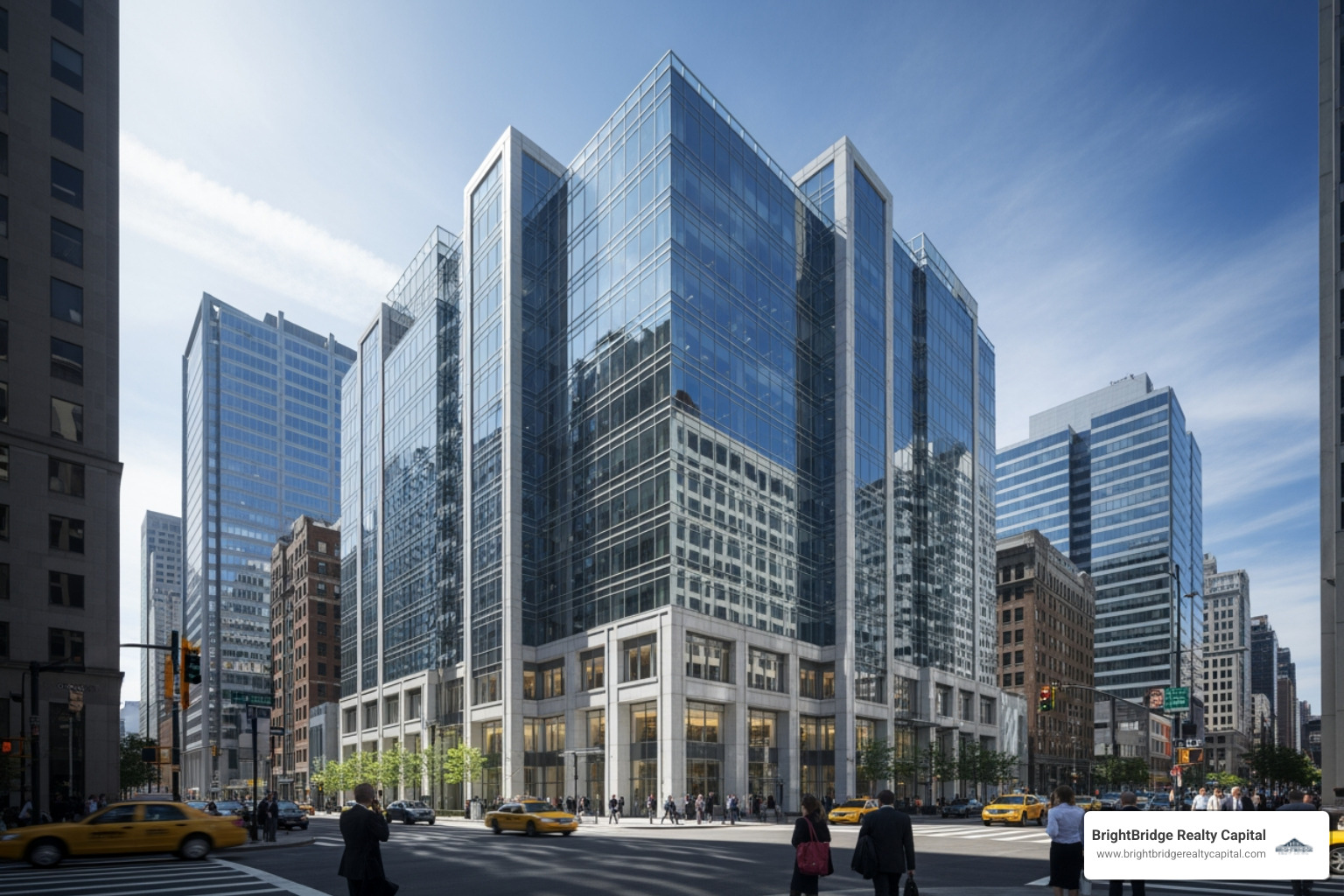The Loan Zone: Comparing Real Estate Loan Options

Real estate loan options can be a game-changer for investors seeking to expand their property portfolios. Whether you're investing in a fix-and-flip project or growing your rental empire, securing the right loan can open up new opportunities. Here's a quick overview of the main categories to consider:
- Conventional Loans: Typically less expensive but harder to obtain.
- Government-Backed Loans: Options like FHA, VA, and USDA loans offer easier qualification criteria.
- Special Programs: Designed for specific groups like first-time homebuyers or those in underserved areas.
In real estate, understanding the variety of home loans and mortgage types is crucial. It ensures you find the most suitable option for financing your next property without the headaches of lengthy processes or hidden costs. These options include everything from traditional mortgages and FHA loans to hard money and private money loans, each catering to different financial situations and investment plans.
Selecting the right mortgage affects not only your current investment but also the flexibility and cost-effectiveness of your future transactions. By understanding these various options, you can make informed decisions that align with your financial goals.

Understanding Real Estate Loan Options
When it comes to real estate loan options, two of the most common categories you'll encounter are conventional loans and government-backed loans. Each serves different needs and comes with its own set of requirements and benefits.
Conventional Loans
Conventional loans are the most popular choice for borrowers with a strong credit history. These loans are not insured or guaranteed by the government, which means they typically require a higher credit score and a larger down payment compared to government-backed loans. However, they often come with lower overall costs if you meet the qualifications.
Conforming loans are a subtype of conventional loans. They "conform" to the standards set by the Federal Housing Finance Agency (FHFA), including limits on the loan amount. In 2025, the conforming loan limit is $806,500 in most areas, though it can be higher in places with liftd housing costs.

To qualify for a conventional loan, you typically need a credit score of at least 620. The higher your score, the better the terms you can expect. Borrowers with excellent credit might only need a 3% down payment for a conforming loan.
Government-Backed Loans
Government-backed loans are designed to make homeownership accessible to more people. They come with easier qualification criteria and lower down payment requirements, making them a popular choice for those who might not qualify for conventional loans.
FHA Loans: Backed by the Federal Housing Administration, these loans are ideal for first-time homebuyers or those with lower credit scores. The FHA allows down payments as low as 3.5%, and you can qualify with a credit score of 580 or higher.
VA Loans: These loans are available to military veterans, active-duty service members, and their spouses. Guaranteed by the U.S. Department of Veterans Affairs, VA loans often require no down payment and do not include private mortgage insurance (PMI).
USDA Loans: The U.S. Department of Agriculture offers these loans to low- and middle-income buyers in rural areas. USDA loans often require no down payment and come with competitive interest rates.

Understanding these loan types can help you choose the best financing option for your situation. Whether you're looking for the flexibility of a conventional loan or the accessibility of a government-backed loan, knowing your options is the first step in making informed financial decisions.
Next, we'll dig into the key factors to consider when choosing a loan, such as down payments, interest rates, and loan terms.
Key Factors in Choosing a Loan
When it comes to choosing the right loan, several factors come into play. Understanding these elements can help you make an informed decision that aligns with your financial situation and homeownership goals.
Loan Terms
The term of your loan is the length of time you have to repay it. The most common loan terms are 30-year and 15-year.
30-year loans offer lower monthly payments since you're spreading the cost over a longer period. However, you'll end up paying more in interest over the life of the loan.
15-year loans, on the other hand, have higher monthly payments but lower total interest costs. They also usually come with lower interest rates.

Choosing between a 30-year and a 15-year loan term depends on your financial stability and long-term plans. If you can handle higher monthly payments, a 15-year loan might save you money in the long run. If you need more manageable payments, a 30-year term could be the better fit.
Interest Rate Types
Interest rates can significantly impact your monthly payments and the total cost of your loan. The two main types of interest rates are fixed-rate and adjustable-rate.
Fixed-rate mortgages offer stability. Your interest rate and monthly payments remain the same throughout the loan term, making it easier to budget.
Adjustable-rate mortgages (ARMs) start with a lower interest rate that can change over time. After an initial fixed period, the rate adjusts based on market conditions, which could lead to lower or higher payments.

Fixed-rate loans are ideal if you plan to stay in your home for a long time and prefer predictable payments. ARMs might be suitable if you expect your income to increase or if you plan to sell or refinance before the rate adjusts.
Down Payment
The size of your down payment affects your loan terms and interest rate. A larger down payment typically means better terms and a lower interest rate. Conventional loans often require a higher down payment compared to government-backed loans.
- Conventional loans might require a down payment of 5% to 20%.
- FHA loans allow for a down payment as low as 3.5%.
- VA and USDA loans may offer no down payment options for eligible buyers.
Choosing the right loan involves balancing your down payment capacity with your desired loan terms and interest rate. It's essential to consider how each factor impacts your overall financial picture.
Next, we’ll explore special programs and assistance available for first-time homebuyers and specific demographics.
Special Programs and Assistance
When it comes to buying a home, real estate loan options aren't one-size-fits-all. Special programs cater to different needs, making homeownership accessible to a broader audience. Let's explore some of these options.
FHA Loan Programs
FHA loans are designed to help first-time homebuyers and those with lower credit scores. This program is managed by the Federal Housing Administration and is known for its flexibility.
Low Down Payment: FHA loans allow buyers to put down as little as 3.5%. This makes it easier for those with limited savings to enter the housing market.
Credit Score Flexibility: Borrowers with lower credit scores can still qualify for an FHA loan. The minimum score required is generally lower than that for conventional loans, making it a viable option for many.
State housing agencies also offer first-time homebuyer programs. These programs often provide down payment assistance, making it even more feasible for new buyers to purchase a home.
VA and USDA Loans
For eligible military members, veterans, and their families, VA loans offer a fantastic opportunity. These loans are backed by the Department of Veterans Affairs and come with several perks:
No Down Payment: In most cases, VA loans don't require any down payment, which can significantly reduce upfront costs.
No Mortgage Insurance: Unlike many other loan types, VA loans don't require private mortgage insurance (PMI), which can save borrowers money each month.
For those looking to buy in rural areas, USDA loans can be a great fit. These loans are backed by the U.S. Department of Agriculture and are geared towards low- to moderate-income buyers:
Rural Focus: USDA loans are available for homes in designated rural areas, providing opportunities for those willing to live outside city centers.
No Down Payment: Similar to VA loans, USDA loans often require no down payment, making them accessible for buyers with limited cash reserves.
These government-backed loans offer unique benefits and can be the key to open uping homeownership for many. Whether you're a first-time buyer, a veteran, or someone looking to settle in a rural community, there's likely a program custom to your needs.
Next, we'll dive into some frequently asked questions about real estate loan options to help you make the best decision for your situation.
Frequently Asked Questions about Real Estate Loan Options
What are the main types of home loans?
When navigating real estate loan options, it's crucial to understand the main types available. Home loans generally fall into two categories: conventional loans and government-backed loans.
Conventional Loans: These are the most common type of home loans and are not part of any government program. They typically require higher credit scores and larger down payments than government-backed loans. Conventional loans can be a good choice for borrowers with strong credit and stable income.
Government-Backed Loans: These include FHA, VA, and USDA loans. They are designed to make homeownership more accessible. For example, FHA loans offer lower down payments and credit score flexibility, VA loans cater to veterans with no down payment required, and USDA loans focus on rural homebuyers with no down payment.
How do I qualify for an FHA loan?
Qualifying for an FHA loan involves meeting specific criteria:
Credit Score: FHA loans are known for their credit score flexibility. You can qualify with a score as low as 580 if you can make a 3.5% down payment. If your score is between 500 and 579, a 10% down payment is needed.
FHA-Approved Lender: You must apply through a lender approved by the Federal Housing Administration. These lenders are familiar with the FHA requirements and can guide you through the application process.
Loan Limits: The property you wish to buy must fall within FHA loan limits, which vary by location. It's essential to check these limits to ensure your desired home qualifies.
What is the difference between fixed-rate and adjustable-rate mortgages?
Understanding the difference between fixed-rate and adjustable-rate mortgages (ARMs) can help you choose the right loan for your financial situation.
Fixed-Rate Mortgages: With a fixed-rate mortgage, your interest rate remains constant throughout the life of the loan. This provides interest rate stability and payment predictability, making it easier to budget for the long term. It's a popular choice for those planning to stay in their homes for many years.
Adjustable-Rate Mortgages (ARMs): ARMs start with a lower interest rate, which can make them more affordable initially. However, the rate can change after an initial fixed period, leading to potential fluctuations in your monthly payments. This option might suit buyers who plan to move or refinance before the rate adjusts.
These FAQs cover the essentials of real estate loan options, helping you make informed decisions as you explore the best loan for your needs. Next, we'll conclude with a look at how BrightBridge Realty Capital can offer customized financing solutions for your real estate journey.
Conclusion
At BrightBridge Realty Capital, we specialize in providing customized financing solutions custom to meet your unique real estate needs. Whether you're investing in a rental property, flipping a house, or starting on a new construction project, our team is here to support you every step of the way.
One of our standout features is our ability to offer fast closings, often within a week. This speed ensures that you can seize opportunities as they arise, without the typical delays associated with traditional financing. Our direct lending approach eliminates intermediaries, allowing us to offer competitive rates and a seamless process.
Our nationwide reach means that no matter where your investment properties are located, we can provide the capital you need. With our expertise and commitment to excellence, we aim to make your real estate financing experience smooth and efficient.
Ready to explore your real estate financing options? Find how BrightBridge Realty Capital can help you achieve your investment goals. Let us bridge the gap between your vision and reality with our smart, flexible funding solutions.


